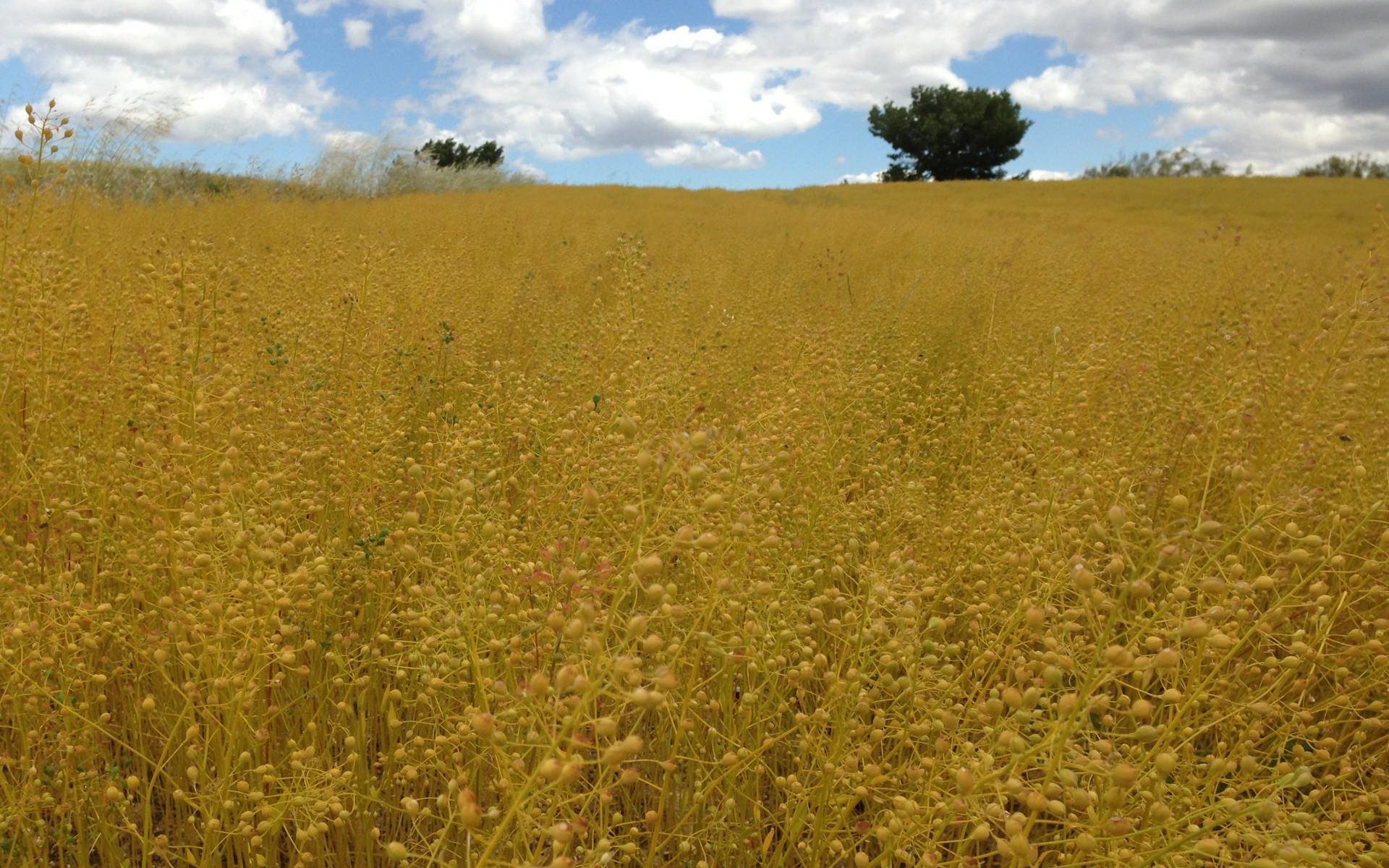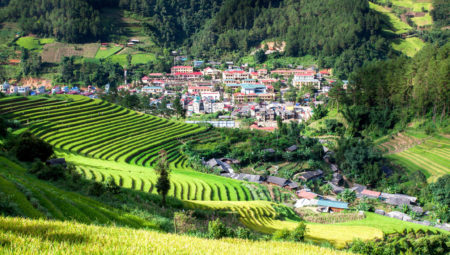That is the main conclusion of the SCOPE report which was published in April 2015. Call it a different sound in the sometimes heated discussions on the use of biomass for energy purposes.
For Luuk van der Wielen (BE-Basic, TU Delft) it is a non-discussion. ‘The report shows that energy from sustainable biomass, if done right, is not detrimental to the environment or food security.
What’s more, the production of sustainable bio-energy gives the local agricultural sector increased financial security and stimulates the economic development, so that the spending power of the local population for food is guaranteed better. If farmers can also sell bio-energy based on residual flows or energy crops, this raises the business income and makes it easier to cope with crises (which result, for example, from failed harvests, drought, plant diseases, etc.). ‘The key to a well-fed population depends only partly on the land,’ according to Van der Wielen, ‘and more especially on the wallet. If sustainable bio-energy can strengthen the local economies, and it can do that, abject poverty and the corresponding malnutrition will decrease.’
Sustainable bio-energy
Van der Wielen is not alone in this. The World Bank, which also contributed to the SCOPE report, is aware of the potential of the responsible use of biomass for energy purposes. At the World Bank Dr. Erick Fernandes works on (sustainable) agriculture. His employer’s mission is to help people living below subsistence level (1 dollar a day) out of the trap of poverty. ‘Energy from biomass already makes a valuable contribution to the economy in South America and Africa. “Developing countries” use around two thirds of the worldwide volume of biomass for energy purposes. It is used for cooking and heating. The problem is that this happens in a way that is not sustainable. Often the women gather wood which results in uncontrolled deforestation. The process is also polluting and sub-optimum. Children and adults inhale the charcoal fumes, which leads to health problems later in life.’ The World Health Organization WHO estimates that 2 million people die every year as a result of inhaling charcoal fumes.
Novozymes in Mozambique
The problem of the polluting burners is now being tackled in numerous initiatives of public or public-private organisations. There are so-called ‘clean burning stoves’ which run on wood (pellets) and there are burners which run on biofuels such as bio-ethanol and biogas. These burners not only make better use of the energetic value of the biomass, but they are also better for humans, their wallets (cheaper energy sources, ed.) and the environment. The question is whether this development gives the regional economy a ‘boost’.
Van der Wielen has serious doubts about this. ‘It is a good development, but you can’t build an economy on it. You will also have to set up an industry which makes biofuels from first or second generation feedstocks, for instance. A good example is CleanStar in Mozambique, a business in which Novozymes participates with its (fermentation) technology. The first step is to produce ethanol on the basis of harvest residue. I imagine that this feedstock and hydrolysis and fermentation technology can also be used for chemicals (lactic acid, PLA, etc.) and/or materials at a later stage.’
Biorefinery à la Redefinery
Van der Wielen considers the Redefinery project as a blueprint for further development of a bio-energy and bio-chemical/material sector in ‘developing countries’ in South America and Africa. ‘Huge economic value is to be found in unravelling biomass into platforms as sugars and processing lignin into high-quality transport fuels to replace diesel, bunker oil and aviation fuels. If you supply lignin for electricity and heating purposes, you get 50 dollars per tonne. If you make the above fuels from it, you get close to 500 dollars. An additional positive effect is that the sugars, the other component of biomass, can become cheaper, so that other applications in chemicals and materials come that much closer. Biofuels are the motor driving this and they are not unimportant as many people believe.’
Redefinery is an example of a large-scale approach, with a production capacity of millions of tonnes per year. Can this approach be achieved in developing countries as well? ‘It does require a cluster of businesses, expertise and capital to set up a biorefinery along the lines of Redefinery. But there are also smaller-scale factories, like the example in Mozambique, which can always be scaled up later. It depends on the market: if your customers are predominantly local, you don’t need to compete on a global scale. If you do the latter, you will have to scale up considerably, because the global market is highly competitive.
Green corridors
According to the SCOPE report, the economic opportunities for bio-energy are obvious. The question is, however: can it be used in such a way that it does not result in problems for the ecosystem? Fernandes believes it can. What’s more, he even sees advantages. ‘You have to see the production of bio-energy in the context of the larger whole. What is the essence? That farmers in these countries make optimum use of scarce resources like water and nutrients in the soil. The importance of carbon in the soil is obvious: it retains water better, it forms a source of nourishment and it makes the soil more “robust”. So farmers cannot harvest all the biomass for energy purposes just like that. But there are numerous possibilities for using “dedicated energy crops” for this purpose. They can be planted in areas where it is not possible or permitted to grow food crops. I see possibilities for green corridors for these crops to protect rain forests against drought.’
Wide level of support
Initiatives for the sustainable use of biomass do not pop up out of ground automatically. Governments and local authorities in these countries will have to facilitate one thing and another through policy instruments and investments in infrastructure and the like. Fernandes argues that countries like Mexico, Colombia and Brazil have developed so-called ‘low carbon growth strategies’. ‘South America and Africa are generally extremely interested in the possibilities of the bio-economy, in economic and ecological terms. A good example is Costa Rica, where farmers and landowners are paid to maintain the level of the ecosystem. They are paid this money from the returns from the tax on petrol.’
Fernandes says the following in answer to the question whether the World Bank will also invest in larger-scale bio-energy projects: ‘That is the field of my colleagues in the Energy Department. They are not that far yet. The World Bank does at least see it as a huge opportunity.’
Redefinery
Redefinery is a project set up on the initiative of Biobased Delta with BE-Basic. It intends establishing factories (several million tonnes per year) which will produce transport fuels based on lignocellulose (from wood, among other things), and in the long term also chemicals such as bio-aromatics. Visit www.agro-chemie.nl for background information.
SCOPE
The SCOPE report (Scientific Committee on Problems of the Environment), titled ‘Bioenergy and Sustainability: bridging the gaps’, is a collective effort with contributions from 137 researchers of 82 institutions in 24 countries. Nine of the 21 chapters were provided by experts from BE-Basic: Hans van Meijl (Wageningen UR), Luuk van der Wielen and Patricia Osseweijer (Delft University of Technology) and Andre Faaij (Utrecht University).
The SCOPE report and the possibilities of bio-energy will also be discussed at length during the ECO-BIO in Rotterdam on 6-9 March, 2016. The conference is organised by BE-Basic and Elsevier.



